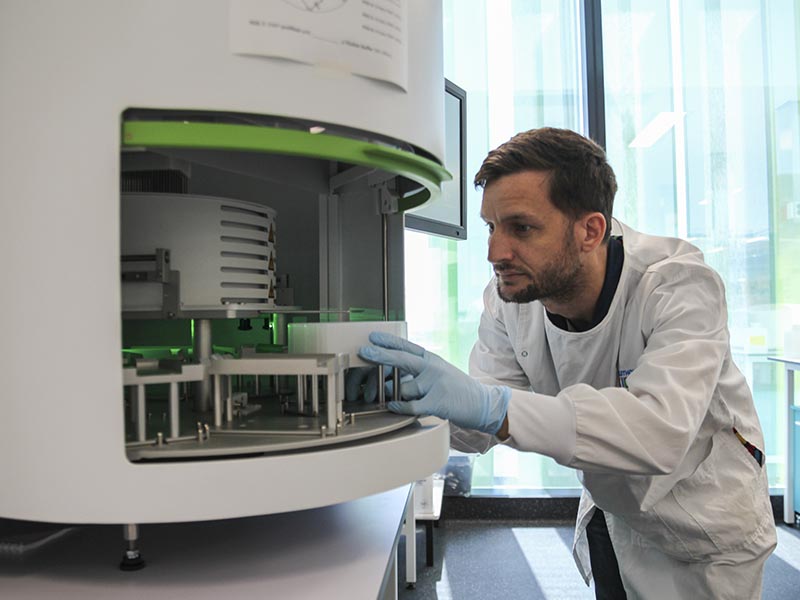Search
Research
Multi-methods process evaluation of the SToP (See, Treat, Prevent) trial: a cluster randomised, stepped wedge trial to support healthy skinHealthy skin is important for maintaining overall physical and cultural health and wellbeing. However, remote-living Australian Aboriginal children contend with disproportionally high rates of Streptococcus pyogenes (Strep A) infected impetigo.
Research
NEARER SCAN (LENO BESIK) evaluation of a task-sharing echocardiographic active case finding programme for rheumatic heart disease in Australia and Timor-LesteRheumatic heart disease (RHD) is underdiagnosed globally resulting in missed treatment opportunities and adverse clinical outcomes. We describe the protocol for a study which aims to co-design, implement and conduct an evaluation of a task-sharing approach to echocardiographic active case finding for early detection and management of RHD in high-risk settings in Australia and Timor-Leste.
Research
Estimating the true number of people with acute rheumatic fever and rheumatic heart disease from two data sources using capture-recapture methodologyIn Australia, accurate case ascertainment of acute rheumatic fever (ARF) and rheumatic heart disease (RHD) diagnoses for disease surveillance and control purposes requires the use of multiple data sources, including RHD registers and hospitalisation records. Despite drawing on multiple data sources, the true burden of ARF/RHD is likely to be underestimated.
Research
Development and temporal validation of a clinical prediction model of transition to psychosis in individuals at ultra-high risk in the UHR 1000+ cohortThe concept of ultra-high risk for psychosis (UHR) has been at the forefront of psychiatric research for several decades, with the ultimate goal of preventing the onset of psychotic disorder in high-risk individuals. Orygen (Melbourne, Australia) has led a range of observational and intervention studies in this clinical population.
Research
Biologic and Clinical Analysis of Childhood Gamma Delta T-ALL Identifies LMO2/STAG2 Rearrangements as Extremely High RiskAcute lymphoblastic leukemia expressing the gamma delta T-cell receptor (γδ T-ALL) is a poorly understood disease. We studied 200 children with γδ T-ALL from 13 clinical study groups to understand the clinical and genetic features of this disease. We found age and genetic drivers were significantly associated with outcome.
Research
Functional outcomes in children and adolescents with neurodisability accessing music therapy: A scoping reviewTo determine the evidence for functional outcomes experienced by a population with paediatric neurodisability (such as acquired brain injury, cerebral palsy, spinal cord injury, and other neurological disorders), who access music therapy through neurorehabilitation services across the rehabilitation spectrum.
Research
Identifying Gaps in the International Consensus Case Definitions for Invasive Aspergillosis: A Review of Clinical Cases Not Meeting These DefinitionsInternational consensus definitions for invasive aspergillosis (IA) in research are rigorous, yet clinically significant cases are often excluded from clinical studies for not meeting proven/probable IA case definitions. To better understand reasons for the failure to meet criteria for proven/probable infection, we herein review 47 such cases for their clinical and microbiological characteristics and outcomes.
Research
Priority setting: Development of the South Australian Aboriginal Chronic Disease Consortium RoadMap for ActionAboriginal and Torres Strait Islander (Aboriginal) people in South Australia are overburdened by cardiovascular disease, diabetes and cancer. The South Australian Aboriginal Chronic Disease Consortium (Consortium) was established in June 2017 as a collaborative partnership to lead the implementation of three state-wide chronic disease plans using a strategic approach to identifying key priority areas for action.
Research
Key elements of Goal-Directed Training for children with cerebral palsy: A qualitative content analysisGoal-directed training is an evidence-based occupational therapy intervention for children with cerebral palsy targeting motor performance and goal attainment. There is variability and limited description on goal-directed training delivery within the studies who found it a successful intervention. The aim of this study was to establish the who, what, why and how of goal directed training according to practicing occupational therapists.

BioSpecs is a flexible service that supports laboratory research by providing expert technical assistance in pre-analytical sample processing and nucleic acid extractions.
